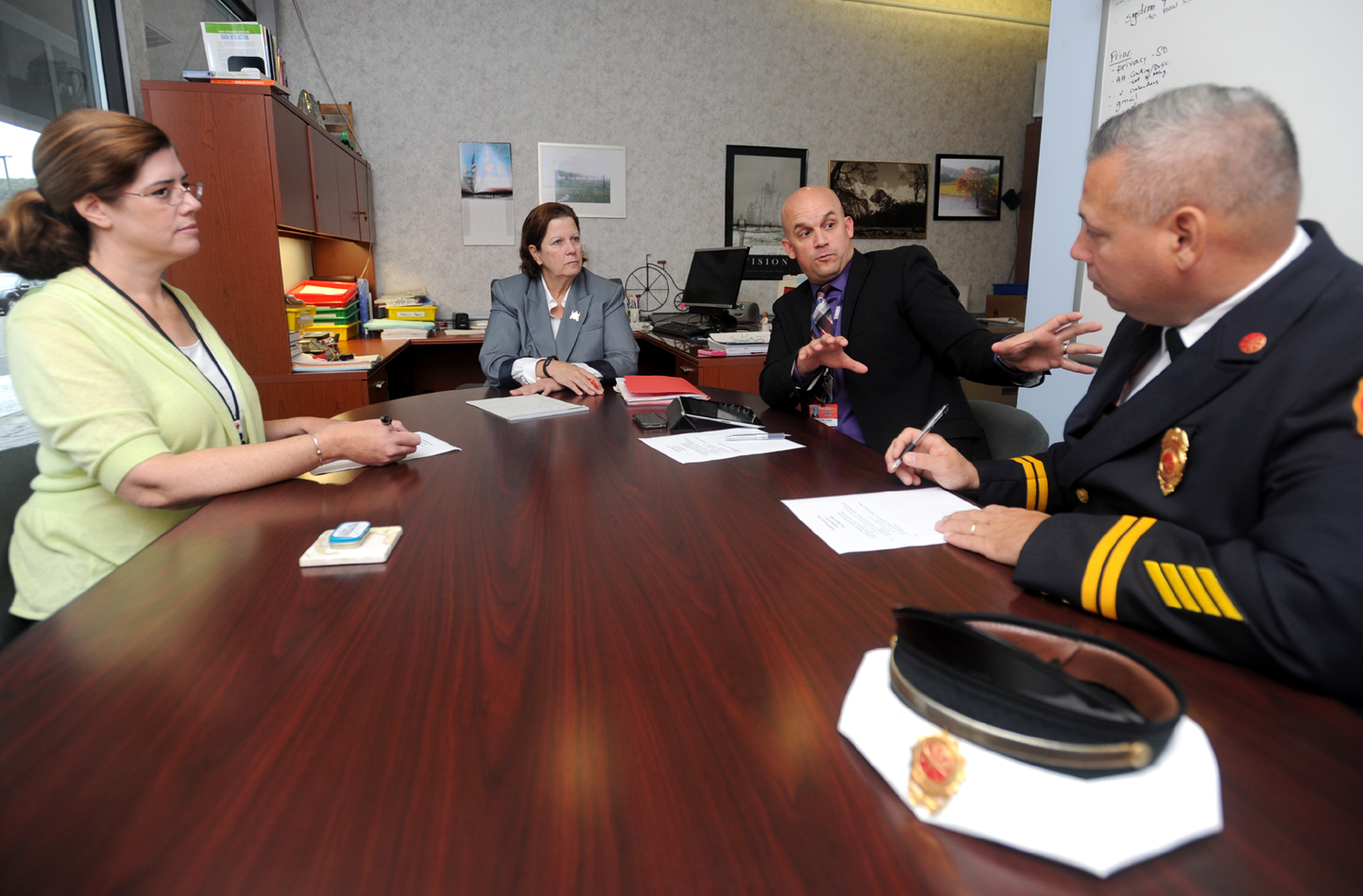WESTFIELD – The city’s school department has implemented innovations to enhance not only the security of the city’s schools but also to better serve students. Members of the Westfield Emergency Team discussed some of these changes at the newly formed team’s second meeting yesterday.
Chris Rogers, the principal of Abner Gibbs School and a member of the team, explained to the other members – Superintendent of Schools Suzanne Scallion; Liz Flaherty, the health and safety coordinator for the schools; and Deputy Fire Chief Patrick Egloff who also represented the absent police chief – that the department’s comprehensive plan for safety in the schools is “not just for school-wide emergencies, we’re also looking to get it down to the individual student level.”
To that end, Rogers said, Urgent Response Teams had been designated in each of the city’s schools so “if we have a student who is a danger to themselves or somebody else or exhibiting signs of being a danger to themselves” a small group of “go-to people” will be in place at each school to help “get that student what they need in the moment, whatever it might be.”
Scallion pointed out that an increasing number of incidents that school nurses deal with involve mental health issues.
“Our nurses do frontline mental health” she said.
She referenced a review of reports from school nurses and said “You cannot believe how many of them are mental health crises. It’s just astonishing, the shift” Scallion said. Flaherty agreed saying “the job has shifted so much from medical to mental health.”
Scallion said that the nurses are even discovering cases of emerging psychoses and Flaherty said that “part of this Urgent Response Team is to help identify these folks, to catch people before they’re in full-blown crisis … to circumvent the full-blown crisis.”
Scallion said that the school system has developed a strong mental health support team for the pupils with more counselors than ever before “because, what we know is we’re going to prevent more intensive mental health issues” for the students later.
“Our work isn’t just the obvious of preventing fires and responding appropriately to those kinds of emergencies, whether it’s a gas leak or a flash flood or a tornado but it’s also the whole kid,” she said. “What could our students experience in their school day with us and how (do we) best prevent, and then respond to those circumstances?”


